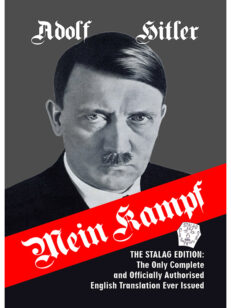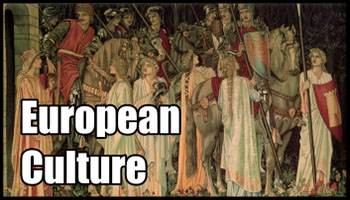Description
By G. Ward Price. An up close and personal account of Adolf Hitler and Benito Mussolini, their political history, policies, and intentions, as published by the Daily Mail’s most famous foreign correspondent in 1937.
At the time when this book was written, the author was broadly sympathetic to both his subjects, and had been given preferential access because of the accurate and truthful nature of his reporting. As a result, he was the only English journalist ever to gain access to both Hitler and Mussolini’s inner circles, becoming so familiar with his subjects that he visited them in their homes.
His description of both dictators’ early lives, political careers, their coming to power, and, most importantly, what they had achieved in their respective nations, provides one of the most accurate overviews of that time ever written in the English language. These achievements included the reform of the social, economic, labor, and industrial sectors, moves which quickly boosted both those nations into becoming the most successful in Europe.
The author did not shy away from describing living under an authoritarian system, pointing out that the price Germans and Italians had willingly paid for their improved social and economic status was a restriction on political and personal freedoms.
“To law-abiding citizens the Nazi Government brought public order, political peace, better living-conditions, and the promise, some fulfilled, to make Germany once more a great nation . . . Upon the people who opposed, or looked like opposing, its plans, it laid a heavy hand . . . The rulers of Germany were stern because they believed the fate of their country was at stake. If they failed, the gates would be open wide to Bolshevism—the same bloodthirsty Bolshevism which had ravaged and liquidated in Russia, tortured and massacred in Hungary . . . The tolerant attitude of the average Anglo-Saxon . . . toward Jews, Communists, and those deluded intellectuals indulgently termed ‘parlour-Bolshevists’ appears in Nazi eyes as stupid apathy in the presence of real danger.”
This book was first published in 1937, with a second edition in 1938, at the height of the Czechoslovak Crisis. After the occupation of the Sudetenland, Ward Price turned against Hitler and Mussolini, and became one of their fiercest critics, causing him to be placed on the official arrest list should he ever fall into Nazi hands.
About the author: George Ward Price (1886–1961) was one of Britain’s foremost foreign correspondents of the 1930s. Educated at St. Catharine’s College, Cambridge, he worked for the Daily Mail as a journalist for the greater part of his career. His postings to the Middle East, Italy, France, North Africa, and numerous other conflict points earned him an appointment as Director of Associated Newspapers Ltd. (the Rothermere Corporation), a media group which included the Daily Mail.
Contents
About the author
Part I
Chapter I: Contrasts of Character
Chapter II: The Human Side of Hitler
Chapter III: Youth, War, and Early Politics
Chapter IV: Initial Reverses
Chapter V: The Rise to Power
Chapter VI: The ‘Regime’ and Its Record
Chapter VII: Men around the Chancellor
Chapter VIII: Hitler’s Aims
Chapter IX: The Press and the Dictators
Part II
Chapter I: The Duce as a Man
Chapter II: Mussolini’s Family
Chapter III: Youth and Early Manhood
Chapter IV: From Corporal to Chief of State
Chapter V: Difficulties and Deeds
Chapter VI: Early Days in Power
Chapter VII: People and Perils about the Duce
Chapter VIII: Mussolini and the Abyssinian Campaign
Chapter IX: The Mediterranean and the ‘Gentleman’s Agreement’
Epilogue
258 pages. Paperback.
His description of both dictators’ early lives, political careers, their coming to power, and, most importantly, what they had achieved in their respective nations, provides one of the most accurate overviews of that time ever written in the English language. These achievements included the reform of the social, economic, labor, and industrial sectors, moves which quickly boosted both those nations into becoming the most successful in Europe.
The author did not shy away from describing living under an authoritarian system, pointing out that the price Germans and Italians had willingly paid for their improved social and economic status was a restriction on political and personal freedoms.
“To law-abiding citizens the Nazi Government brought public order, political peace, better living-conditions, and the promise, some fulfilled, to make Germany once more a great nation . . . Upon the people who opposed, or looked like opposing, its plans, it laid a heavy hand . . . The rulers of Germany were stern because they believed the fate of their country was at stake. If they failed, the gates would be open wide to Bolshevism—the same bloodthirsty Bolshevism which had ravaged and liquidated in Russia, tortured and massacred in Hungary . . . The tolerant attitude of the average Anglo-Saxon . . . toward Jews, Communists, and those deluded intellectuals indulgently termed ‘parlour-Bolshevists’ appears in Nazi eyes as stupid apathy in the presence of real danger.”
This book was first published in 1937, with a second edition in 1938, at the height of the Czechoslovak Crisis. After the occupation of the Sudetenland, Ward Price turned against Hitler and Mussolini, and became one of their fiercest critics, causing him to be placed on the official arrest list should he ever fall into Nazi hands.
About the author: George Ward Price (1886–1961) was one of Britain’s foremost foreign correspondents of the 1930s. Educated at St. Catharine’s College, Cambridge, he worked for the Daily Mail as a journalist for the greater part of his career. His postings to the Middle East, Italy, France, North Africa, and numerous other conflict points earned him an appointment as Director of Associated Newspapers Ltd. (the Rothermere Corporation), a media group which included the Daily Mail.
Contents
About the author
Part I
Chapter I: Contrasts of Character
Chapter II: The Human Side of Hitler
Chapter III: Youth, War, and Early Politics
Chapter IV: Initial Reverses
Chapter V: The Rise to Power
Chapter VI: The ‘Regime’ and Its Record
Chapter VII: Men around the Chancellor
Chapter VIII: Hitler’s Aims
Chapter IX: The Press and the Dictators
Part II
Chapter I: The Duce as a Man
Chapter II: Mussolini’s Family
Chapter III: Youth and Early Manhood
Chapter IV: From Corporal to Chief of State
Chapter V: Difficulties and Deeds
Chapter VI: Early Days in Power
Chapter VII: People and Perils about the Duce
Chapter VIII: Mussolini and the Abyssinian Campaign
Chapter IX: The Mediterranean and the ‘Gentleman’s Agreement’
Epilogue
258 pages. Paperback.



























